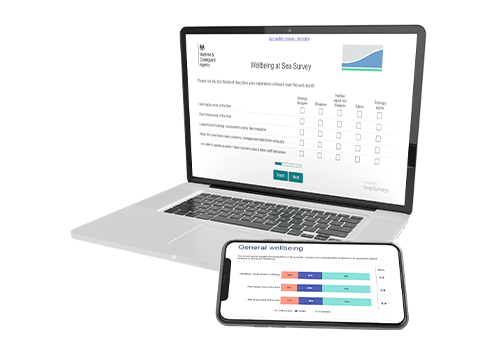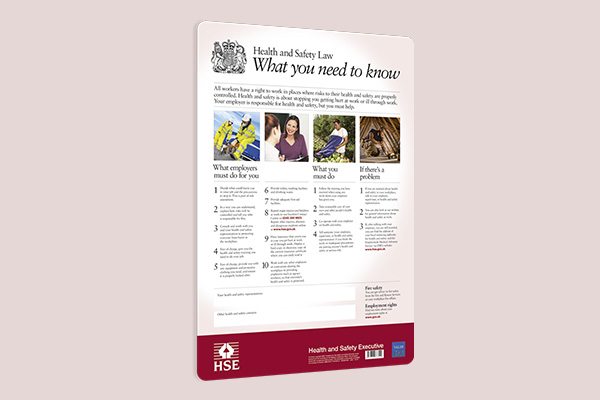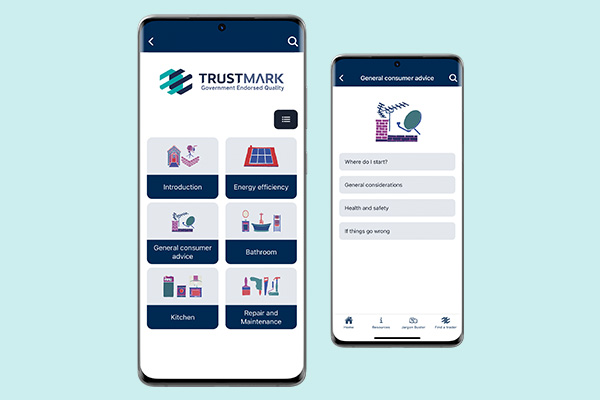Introduction
TSO has been the official publisher for the UK’s Maritime and Coastguard Agency (MCA) for more than 30 years. During that time we have diversified the portfolio in both format and subject matter.
The challenge
Seafarers’ mental health and wellbeing have always been a core focus for the maritime industry. The MCA recognises that there are many positive interventions available to improve mental wellbeing. However, it became clear through discussion with stakeholders that although good industry guidance exists, it is difficult for companies and seafarers to establish:
- the current state of wellbeing onboard
- the impact of interventions on wellbeing.
As a result of this research, MCA’s human element team worked with TSO to develop the Wellbeing at Sea Tool.
In 2020, we published two guides for MCA:
- Wellbeing at Sea: A Guide for Organisations
- Wellbeing at Sea: A Pocket Guide for Seafarers.
The publications give pragmatic advice to help shipping companies and individual seafarers to improve wellbeing onboard. The maritime sector then needed more support to put the theory into practice. To achieve this, direct engagement with seafarers was needed.
The solution
The Wellbeing at Sea Tool is a digital survey that seafarers complete. Users then receive personalised advice on how to improve their wellbeing at sea. The tool collects anonymised data which is sent to managers to help them identify priority areas for improvement.
MCA initially developed the questions in the tool by asking 197 seafarers 70 questions about their wellbeing, mental state, physical state, working conditions and organisational culture. Factor analysis was then used to identify the questions with the strongest correlation to overall wellbeing. The shortlist of questions were then separated the shortlist of questions into the following categories:
- general wellbeing
- bullying
- harassment and discrimination
- diversity and inclusion
- physical health
- tiredness and fatigue
- organisational support.
The result
The Wellbeing at Sea Tool went into private beta testing (pilot) in spring 2022 before going into a public beta phase. It was piloted by four organisations, covering around 350 respondents.
During the initial pilot more than 95% of the participating seafarers agreed that:
- wellbeing at sea needs more focus from both seafarers and organisations
- the survey ran smoothly
- it was easy to answer the questions
- the wellbeing advice provided is helpful
- the email is a useful reminder of the wellbeing advice.
The Wellbeing at Sea Tool and further information is available here: https://www.wellbeingseatool.com/







